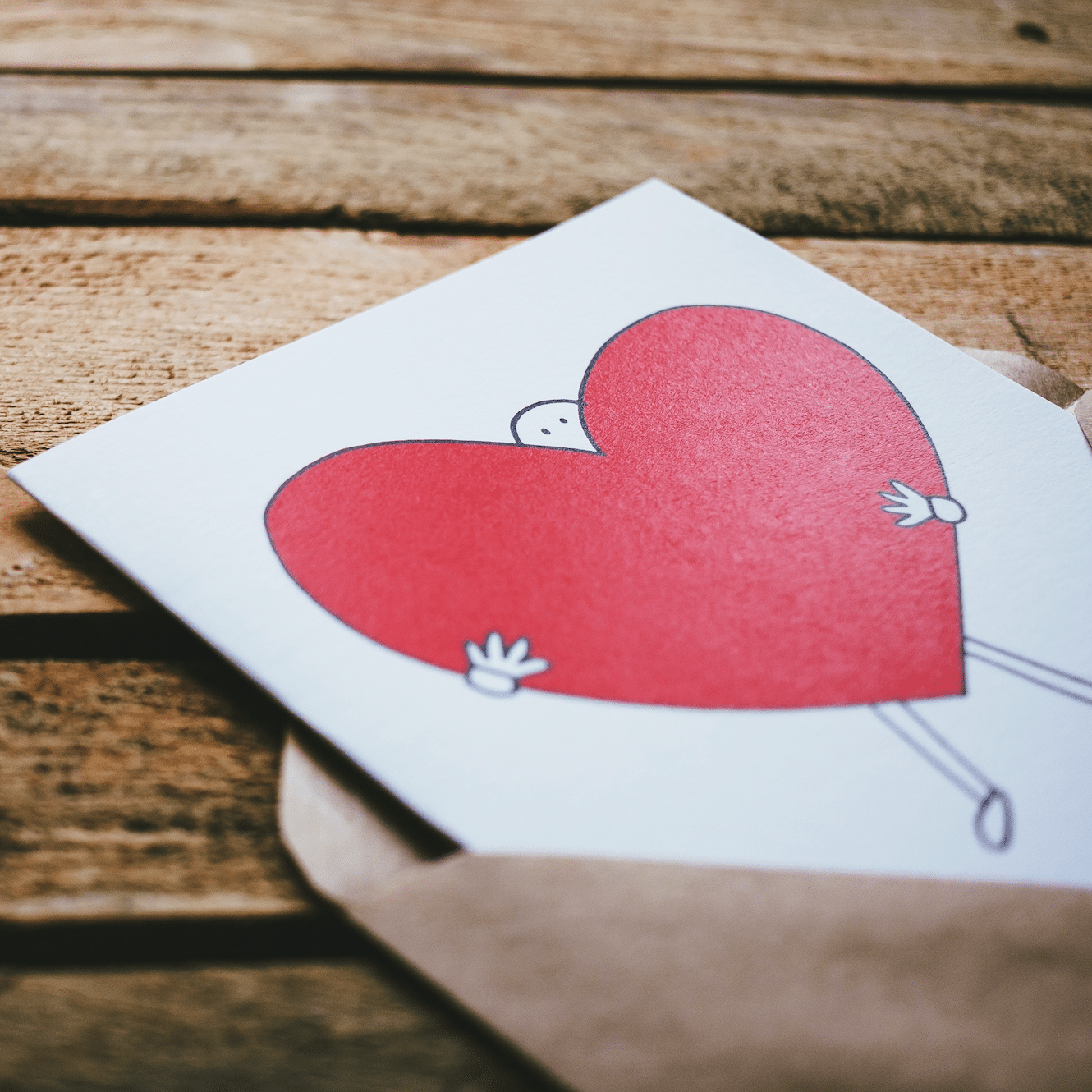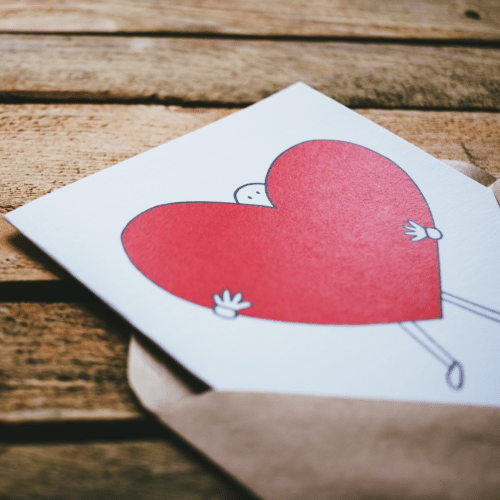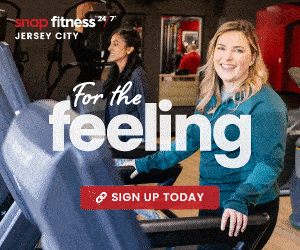At a time when we’re all glued to social media and gripped by racial injustice, there’s a real and reassuring message that has started to surface — “We want to listen; we want to change.” And while in the past, we’ve proudly patted ourselves on the back for living in diverse and inclusive cities like Hoboken and Jersey City in the present-day, racism is real here, too. To shed light on the ever-present issue, we spoke with locals who have experienced racism first-hand in our community. These are voices of people who hail from the place you call home — a friend you hang with at the bar, the woman sitting next to you on your commute, the man waiting in line at the coffee shop, the mom you see at school drop-off — they are from all walks of life living in Hoboken and Jersey City. These are their voices.

Have a story to share? Email us at hello@hobokengirl.com.
Jordan, 28, Hoboken
“I’ve been through breakups and the death of loved ones, but nothing has hurt more than when my coworker used the N-word in front of me and not much was done. I said, ‘What did you just say?,’ and he said it again! [He] told me he was quoting a song lyric or something. I was so caught off guard that I didn’t immediately report it to HR or take real action, and that haunts me to this day. I didn’t feel like I had much of a leg to stand on at the time. Instead, I would sit at my desk feeling like I was going to throw up during the many mornings when we were the only two in the office. I dreaded so many moments at work during that time, even though I loved my daily job. But the most painful part was that when I worked up the nerve to tell my manager, a good friend of mine, and she did absolutely nothing about it. Her silence hurt most of all.
We’ve since had very honest conversations and are close again, and my coworker left for a different job. I am proud to share that the workplace environment is now very inclusive and provides great resources for employees of all backgrounds. By speaking up, I feel as though I made real change. Now, I have a zero-tolerance policy. If people say something offensive, I want to teach them so they understand why the comment is racist. It’s the same way I would want to be treated. If I said something offensive, I hope they educate me so we can move forward.”
Read More: A List of Black-Owned Businesses to Support in Hoboken + Jersey City
Teri, 30 Hoboken
“For me, racism isn’t a singular event. It’s more the feeling that even though I’ve done all the things I’m ‘supposed to do’ — graduated college, moved into an apartment, got a job in New York City — I still have to be on guard because I’m being judged. For instance one time I was browsing a store and realized I was being followed closely by the salesperson who thought I was shoplifting! So now every time I go into a store I feel like I have to be overly friendly so people don’t think I’m there to steal. But sometimes I just want to go shopping and look real grubby or walk out of my nice building in my worst clothes. But I don’t want people to see me and think I don’t live here. It’s a different standard; I have to put out this image of myself into the world so I look acceptable.”
ENI, Lifelong Hoboken Resident
“When people mention gentrification — I don’t think they realize it’s not just a racial issue in Hoboken — it’s much more than that. This design is systemic, and I’ve lived here my whole life. We don’t want to leave Hoboken. Everyone knows everyone. But life is different now.
But on that subject, it’s also stories like my grandmother, her friends, coming into Hoboken at the time and experiencing it. Even at the time – people would not easily sell homes to people of color — you had to be very light-skinned, also known as “passing.” My grandmother used to live on Garden Street, but in the 70s and 80s, they started pushing people out by raising the rent or setting fires to physically push them out.
Even growing up, as an Afro-Latinx, I never felt like I fit in. ‘You look too black,’ my Latinx friends would say, and vice versa. It’s crazy because you lose your identity.
In the ’90s, I went to Calabro School in Hoboken. I remember my first experience where the teacher said “I had to act more lady-like” and would always insult me but not other students, which I told my aunt about, and she came in, and well — let’s just say, the hallways are industrial and cement, so the echo was loud. I wasn’t able to understand why she was so angry til years later.
Later in school in 5th grade, I had a white teacher who always noticed that I had a problem when reading. He would be so nice to the other kids reading, but when I was reading, he would be so mean. At one point, he had me take my entire desk and put my desk in the hallway. There were no doors at that time, so I’m literally in the middle of the hallway and he would make me read a paragraph from the hallway. I’m shouting so the rest of the class could hear me, trying to talk, and he’d just say, “you’re talking with your teeth.” He and his friend who was a science teacher always used to make my life miserable. Me, a 5th grader.”
Hector, 41, Jersey City
“One summer afternoon, I was outside with my daughter, watching her and some other kids from the neighborhood, and a cop pulled up saying he got a call that I was being loud and smoking weed. I’m like, ‘No, I’m watching these kids and we are just out here enjoying the weather.’ But he still ID-ed me and told us to go inside while my white neighbors who were also outside were not questioned.
Then, there was the time I was talking to my mom outside her house and a cop car pulled up and told me to get against the wall to search me for no reason. And in front of my mother! It’s sad, man. I have stories for days, and when you experience this time and again, it lives with you. But I’ve had good moments, too. One time my daughter was selling lemonade and some cops bought four cups and gave her an extra tip. They did that even after I warned them that the lemonade she made tasted really bad!”
Vanessa, 41, Hoboken
“Just the other day, a friend said to me, ‘I think you need to hear this from a white person, but you’re not really black.’ Growing up, I was the only black kid in an all-white school with the exception of my sister and cousins, but for the most part, my parents shielded us from racism. Still, there were times when I felt not good enough. I remember a classmate telling me, ‘You can call my house because you sound white; my parents hate black people.’ Then there was the time I was walking with my dad to his office, and a man shouted a racial slur at us from his pickup truck. When I looked up at my dad for a reaction, he simply said, ’I’m walking into my workplace on Madison Avenue and that man has ketchup on his shirt.’ Finally, freshman year of college, a guy said to me, ‘You’re pretty for a black girl; you don’t have big lips and your hair is really nice.’ I went back to my dorm shocked and called my parents to be like ‘What is up?’ They were like, ‘Listen, kid, people can be racist.’ Now that I have my own children, I’ve taken a different approach. I speak to them very frankly about race so when they hear or see racism, they won’t be shocked. I can’t put blinders on them.”
Sarah, 45, Hoboken
“When I got pregnant with my son, I knew that I would have to take care of him differently than I did with my daughter. She was 12 at the time and she was white. He would be black. I dove into educating myself about black history and watching documentaries like Promises Kept about how to raise black boys to succeed. It’s embarrassing how little I knew!
The hard truth is that standards are different for him. I always have to make sure that his clothes are neat and pressed, and I’m trying to teach him to present himself in a way that keeps him out of trouble, alive. Starting at age three, I made it a point to teach him how to interact with police in his community and in his school. I want them to know him — something I never thought about once with my daughter! I can’t let him play with toy guns, water guns, tree branches that look like guns — nothing. When parents don’t understand this at the playground, I point out that Tamir Rice was only 12 when he was killed holding a toy gun. It’s tough to be a parent, but even harder during these times of horrible racial inequities and murders. Soon enough, he will grow into a black man, and I worry that things won’t change.”
Michael, 31, Jersey City
“My grandparents had no experience with racism until they moved to New Jersey from Jamaica in the 70s. They had dynamite put their mailbox and a brick was thrown through their living room window, barely missing my aunt who was a kid at the time. Still, I was never taught never to see anyone as anything other than another human being and to be respectful at all times. Jamaicans are very diligent people when it comes to respect. A few years ago, my cousin was driving home from work, got pulled over, was told to get the F out of the car, and was put on the ground with a gun to his back. When we dug deeper we learned there was a convenience store robbery —except that my cousin didn’t fit the description at all. It hurts a lot to hear these stories and there are movements that it can consume you. But I believe in using history as a weapon against wrongdoing and evil. Our generation saw all the work our parents and grandparents did, and we are not going to stand for it. For all the people who are standing with us, I want them to know this: we hear you.”
See More: 25+ Ways to Advocate For Racial Justice Locally
Allie, 35, Jersey City
“At freshman orientation at Georgetown University, I was surrounded by people saying things like, ‘They let you in because you’re black.’ I was like, ‘Listen, I got in because I worked my butt off, and you should congratulate me for being awesome.’ There was even a time I was trying to rent an apartment in D.C., and the landlord looked at me and shut the door. What they didn’t see is that I grew up in an affluent New Jersey suburb and was given every opportunity to succeed. Now, I’m the manager of a tech recruiting firm.
I still experience racism in the form of many microaggressions — like when people bypass the workers at TJ Maxx or the grocery store to ask me for help, only because I’m the only black person in the aisle. Or when a coworker referred to my then-husband as my baby daddy or asked if my parents are still together {they were married for 40 years before my dad passed}. I’ve even had people calculate how long I’d been married to when I had my daughter to see if I did it the correct way. Those things are more hurtful than blatant racism because it’s so ingrained in people’s minds that they don’t realize they’re doing it. But I truly believe we are at a turning point. I’m finally seeing white women and mothers stand up and say, ‘This is bullshit!’ I hear this and see these kids protesting, and I think we’re all really going to make a change.”
Do you have a story or experience to share?
Email us at hello@hobokengirl.com.

Check out Hoboken Girl’s new Job Board here!









